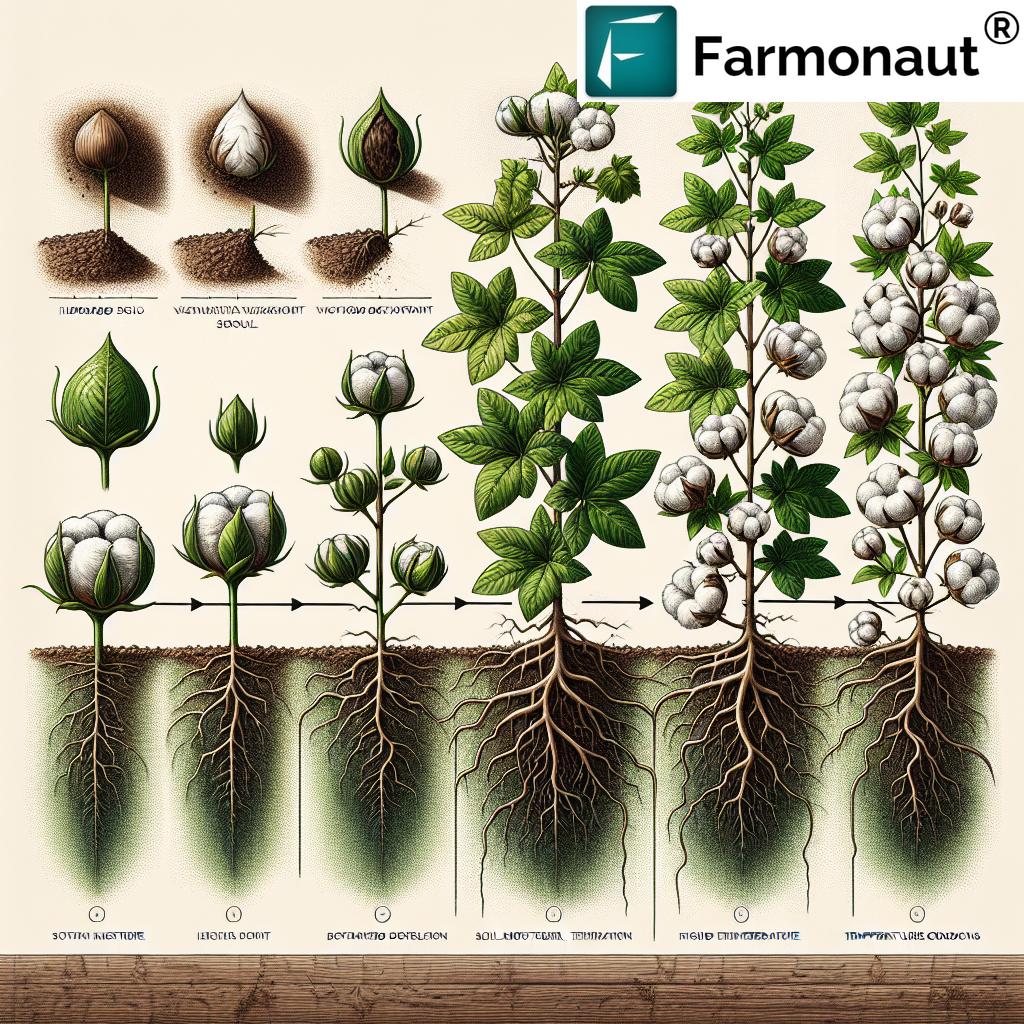National Beekeeping Day 2026: Natural Beekeeping Tips
“Natural beekeeping can increase pollination efficiency by up to 30%, boosting sustainable agriculture and crop yields worldwide.”
Summary: Celebrating National Beekeeping Day 2026
National Beekeeping Day 2026 serves as a landmark observance, recognizing not only the indispensable role of bees in sustaining food systems and ecosystem health, but also the positive impact of natural beekeeping practices on agricultural and environmental sustainability. This annual event shines a spotlight on the vital contributions made by beekeepers worldwide, especially those embracing natural and regenerative approaches that strengthen our collective resilience against global challenges—from declining bee populations to shifting climate patterns and food insecurity.
“Over 75% of food crops rely on animal pollinators, making natural beekeeping vital for global ecosystem health.”
The Vital Importance of Bees in Agriculture and Ecosystems
Bees sit at the very heart of agriculture. Their pollination services are responsible for nearly one-third of the food we consume—from the fruits, vegetables, nuts, and oilseeds we depend on, to many of the world’s most economically significant crops.
- Increased Yields: According to recent studies leading into 2026, effective bee pollination boosts yields and improves the quality of agricultural products, making bees indispensable agents for farming systems worldwide.
- Biodiversity: By facilitating the reproduction of a wide variety of plants, bees promote biodiversity and support healthy ecosystems and wildlife habitats.
- Food Security: The global rise in population and climate unpredictability heighten our dependence on pollination for food security and rural livelihoods.
The decline in wild pollinator populations due to habitat loss, climate change, and rampant pesticide use now threatens food security worldwide, making national beekeeping and natural approaches more critical than ever.
National and global movements such as National Agriculture Day and National Ag Day are now emphasizing the integration of beekeeping and pollinator-supporting practices into food production systems, echoing the urgent calls of researchers, environmental organizations, and farming communities alike.
Natural Beekeeping: A Sustainable Approach
In the evolving landscape of agriculture in 2026 and beyond, natural beekeeping has gained significant momentum as a sustainable alternative to conventional apiculture. This approach is rooted in:
- Prioritizing Bee Welfare: Ensuring the health and natural behaviors of bees by minimizing chemical interventions and artificial manipulations.
- Habitat-Centric Practices: Using hive designs that mimic wild bee habitats, supporting local genetics to improve resilience to local climate and disease pressures.
- Reducing External Inputs: Adopting treatment-free methods, natural materials, and fostering local forage diversity to promote bee health and support system-wide biodiversity.
Natural beekeeping aligns with sustainable agriculture goals—reducing dependency on chemicals, fostering soil health, and creating synergy between pollinators and crops.
Farms and urban enterprises adopting natural beekeeping report benefits stretching well beyond honey: increased pollination rates, enhanced ecosystem services, and improved community engagement.
Traditional vs. Natural Beekeeping Practices: A Sustainability Comparison
Understanding the key differences between traditional and natural beekeeping practices is pivotal for beekeepers planning for the future as well as for those celebrating National Beekeeping Day 2026. Below is a comparative table to help clarify how natural beekeeping enhances sustainability and environmental health.
| Practice Aspect | Traditional Beekeeping (Estimated Data) | Natural Beekeeping (Estimated Data) | Sustainability Impact |
|---|---|---|---|
| Chemical Use | Frequent (Pesticide/fungicide use: ~65%) | Rare/Minimized (<10%) | Reduces chemical loads in ecosystems |
| Hive Materials | ~70% synthetic/commercial hives | 90%+ natural/local materials | Minimizes waste, lowers environmental impact |
| Bee Health Indicators | Annual colony loss: 30% | Annual colony loss: 15% | Improved longevity and overall bee health |
| Pollinator Support | Diversity index: Low | Diversity index: High | Promotes biodiversity and resilience |
| Impact on Ecosystem | Soil health effect: Neutral/Negative (score 4/10) | Soil health effect: Positive (score 9/10) | Supports ecosystem balance and regeneration |
This comparative analysis underscores that adopting natural beekeeping can play a major role in reducing environmental harm, enhancing biodiversity, and improving bee health and pollination services—outcomes that are central to the objectives of National Beekeeping Day.
Beekeeping at Home: Connecting Urban and Rural Communities
A rapidly expanding trend throughout 2026 is beekeeping at home, bridging gaps between urban, peri-urban, and rural populations.
Natural beekeeping methods are also being embraced by city-dwellers and home gardeners, as National Beekeeping Day inspires education programs and community gardens supporting biodiversity.
- Urban Beekeeping: Hosting hives on rooftops, balconies, and school gardens builds awareness for pollinator conservation among people traditionally far-removed from agricultural systems.
- Pollinator Corridors: Connecting fragmented urban habitats with honey bee corridors boosts city-wide biodiversity and helps sustain pollinator populations even in dense metropolitan centers.
- Food Security and Community Engagement: Beekeeping at home increases local food production and strengthens climate resilience by ensuring continued pollination.
- Environmental Responsibility: Urban beekeepers employing natural practices foster pollinator-friendly habitats free from harmful chemicals and monocultures.
Celebrating National Beekeeping Day in 2026 means recognizing beekeeping at home as a key force for connecting people with nature, revitalizing grassroots conservation, and integrating bees as part of urban agriculture.
Beekeeping’s Role in Forestry and Ecosystems
The importance of beekeeping extends beyond agriculture. Forest ecosystems depend on bees for the pollination of wildflowers and understory plants, which in turn sustain wildlife and promote biodiversity.
- Integrated Forestry Programs: Many global and local forestry programs—especially highlighted on National Beekeeping Day—increasingly integrate beekeeping as part of forest management. Healthy forests provide forage for bees, while bees support forest regeneration—it’s a true win-win for nature.
- Climate Change Mitigation: Forest beekeeping helps buffer climate change impacts by maintaining ecosystem services necessary for carbon sequestration, soil and water retention, and preserving wild habitats.
Encouraging natural beekeeping in and around forests supports diverse pollinator populations, enhances ecosystem resilience, and ensures a more sustainable future for both rural and urban communities.
How Farmonaut Supports Sustainable Beekeeping and Agriculture
At Farmonaut, we are committed to providing advanced satellite technology and data-driven tools that empower agricultural operators and beekeepers worldwide. Our platform delivers actionable insights designed to optimize crop health, environmental monitoring, and traceability.
- Environmental Impact Monitoring: Our systems offer real-time tracking of carbon footprints and other environmental variables—crucial for beekeepers and farmers adopting natural practices. Discover more at Carbon Footprinting for Agriculture & Apiculture.
- Traceability Solutions: Blockchain integration ensures the transparency and authenticity of honey production, enhancing consumer trust. Learn how our Traceability Solution helps ensure honey quality.
- Crop and Forest Monitoring: Satellite imagery aids both beekeepers and farmers in evaluating forage availability, crop health, and habitat diversity. Our Crop, Plantation, & Forest Advisory app supports sustainable land management.
- Resource Management and Advisory: Our Jeevn AI Advisory System delivers tailored insights for planning, monitoring, and managing beekeeping and farming operations.
- API Access: For developers and enterprises, our API and Developer Docs provide seamless integration of satellite and weather insights for customized workflows.
By utilizing Farmonaut’s real-time data on crop health, land use, and environmental impacts, beekeepers and farmers can proactively build resilient systems, reduce chemical inputs, and contribute meaningfully to a sustainable future.
Natural Beekeeping Tips for 2026 and Beyond
Celebrating National Beekeeping Day is not complete without offering actionable tips and guidelines for natural beekeeping that are relevant for both 2026 and the years ahead. Whether you are just beginning your journey or looking to transition to a more natural approach, these sustainable practices will help enhance pollinator health and strengthen your ecosystem.
Best Practices for Natural Beekeeping
-
Emphasize Diversity in Forage:
- Plant a wide array of native, pesticide-free flowers, fruits, and vegetables near hives to boost bee nutrition and support ecosystem biodiversity.
-
Use Natural Materials for Hives:
- Select natural wood and avoid plastics or chemical treatments in hive construction for healthier bee colonies and lower toxic loads.
-
Minimize Chemical Intervention:
- Practice preventive methods for pest control (e.g., screened bottom boards) instead of routine pesticide applications.
-
Encourage Local Genetics:
- Source bees locally or allow for natural swarming to encourage adaptation to regional climate and disease pressures.
-
Monitor Hive Health Proactively:
- Regular hive inspections help catch disease risks early. Consider leveraging satellite-based solutions like Farmonaut’s crop and ecosystem monitoring for broader land health awareness.
-
Promote Pollinator Corridors:
- Collaborate with communities to connect green spaces, gardens, and wild patches for uninterrupted bee movement.
-
Practice Gentle Management:
- Minimize intrusive hive manipulations and avoid disrupting natural bee behavior patterns.
-
Integrate Beekeeping into Agricultural and Forestry Systems:
- Place hives where they can contribute to pollinating diverse crops and forest flora, maximizing ecosystem services.
-
Engage in Continuous Education:
- Take advantage of resources offered by organizations and technology providers to stay ahead of emerging threats and best practices.
-
Embrace Emerging Technologies:
- Use tools like Farmonaut’s Crop, Plantation, & Forest Advisory for advanced satellite monitoring of landscapes and beehive environments.
By implementing these tips, you can enhance resilience in your apiary, contribute to global pollinator health, and set an example for sustainable farming practices in 2026 and beyond.
Challenges in Modern Beekeeping: The Way Forward
Despite the proven and substantial benefits of natural beekeeping explored on National Beekeeping Day 2026, the industry still grapples with considerable challenges:
- Climate Change: Unpredictable weather, droughts, and shifting flowering seasons can destabilize bee populations.
- Pests and Diseases: Varroa mites, Nosema, and other diseases remain pervasive threats, necessitating constant vigilance and innovation.
- Habitat Loss: Expanding urbanization and monocultures are shrinking forage areas and nesting opportunities for both managed and wild pollinators.
- Pesticide Exposure: Non-selective and high-volume pesticide use in agriculture directly undermines bee health.
- Land Use Changes: The reduction of flower-rich meadows and other wild habitats disrupts ecosystem sustenance for pollinators.
The way forward involves a robust framework combining:
- Adoption of natural beekeeping at both small and commercial scales
- Advocacy for pollinator-friendly legislation
- Leveraging advanced monitoring, like Large Scale Farm Management Tools to sustainably scale apiary and crop operations
National Beekeeping Day is the focal point for encouraging collective efforts, promoting public awareness, and driving policy shifts for a healthier, more sustainable future.
Frequently Asked Questions: National Beekeeping Day & Natural Beekeeping
What is National Beekeeping Day?
National Beekeeping Day is an annual observance dedicated to recognizing the vital role of bees in agriculture, ecosystems, and food security. It highlights contributions from beekeepers and urges the adoption of sustainable, natural beekeeping practices.
How does natural beekeeping differ from traditional beekeeping?
While traditional beekeeping often relies on chemical interventions and artificial management, natural beekeeping prioritizes bee welfare, minimizes synthetic inputs, and encourages bees’ natural behaviors for improved colony health and biodiversity.
Why is beekeeping at home important?
Beekeeping at home increases pollinator populations in urban settings, raises public awareness about the importance of pollination, and supports local food systems.
How is Farmonaut relevant for natural beekeepers?
Farmonaut offers satellite-driven data and monitoring tools supporting environmental stewardship and sustainable agricultural practices. These insights empower beekeepers to optimize hive placement, manage resources, and ensure traceability for honey production.
What steps can I take to improve bee health in my apiary?
Adopt natural beekeeping methods: diversify forage, avoid pesticides, encourage local genetics, and monitor regularly using both physical inspections and advanced monitoring solutions.
Is natural beekeeping scalable for large operations?
Yes, recent innovation in eco-friendly hive designs, habitat management, and satellite-based analytics (like those from Farmonaut) have made it possible to scale natural approaches without compromising bee health.
Conclusion: Embracing Natural Beekeeping for the Future
National Beekeeping Day 2026 comes at a time when supporting bee populations and sustainable agricultural systems is more important than ever. By embracing natural beekeeping practices, we can reinforce ecosystem health, enhance resilience to environmental challenges, and contribute to a more secure future for our food systems and local communities.
- Harness the power of natural methods for the welfare of your bees and the environment.
- Integrate beekeeping with agricultural, forest, and urban spaces to support pollinators year-round.
- Leverage innovation in satellite monitoring and traceability to guide management decisions.
- Participate in and advocate for National Beekeeping Day—your actions have global impact.
Every step taken to promote natural beekeeping not only benefits your apiary but also bolsters the systems upon which our global food security and environmental health rely.
Resources and Farmonaut Eco-Links
Equip yourself for sustainable beekeeping using these resources:
- Get Started or Monitor Your Land: Download the Farmonaut mobile app for instant access to satellite crop and environment monitoring.
- Traceability Tools: Learn how you can achieve blockchain-based honey traceability and increase trust using our Traceability Product Page.
- Environmental Monitoring: Quantify your apiary’s carbon footprint and sustainability gains at the Carbon Footprinting portal.
- Financial Security: Explore Crop Loan and Insurance solutions backed by satellite verification.
- Fleet & Farm Management: For large-scale operators, our Fleet Management tools optimize logistics and resource use.
-
For Developers: Get API access and documentation:
API | Developer Docs
In 2026 and beyond, let us celebrate National Beekeeping Day by committing to natural beekeeping practices—ensuring healthy bees, resilient agricultural systems, and a thriving, sustainable future for all.













